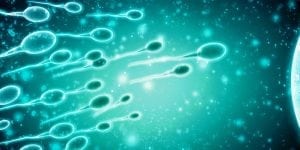
An Introduction to Iodine
Iodine is a chemical element, as well as a nutrient, that is contained in many commonly consumed foods such as fish, other types of seafood, dairy products, grains, certain fruits and vegetables, and iodized salt. The substance is also prevalent in many dietary vitamin supplements. Medical professionals and nutrition experts recommend that adults consume at least 150 micrograms (mcg) of iodine per day.
The Importance of Iodine
As a critical factor in helping the body regulate hormone production, this nutrient is particularly vital when referencing the thyroid gland, due to the fact that the thyroid gland cannot create necessary hormones without receiving a sufficient supply of iodine. The nutrient, iodine, is often referred to as the “endocrine mineral” because of its in stimulating the production of other important hormones secreted by the adrenal glands and the reproductive organs of men and women.
The Effects of Low Iodine Levels
Low systemic concentrations of iodine can impact numerous organs and glands, which may elicit a variety of symptoms. Common manifestations of iodine insufficiency can include fatigue, weight gain, hair loss, skin irritation, pulse rate fluctuations and concentration difficulties. That said, of particular concern to women of child-bearing ages is the deficiency’s impact upon fertility.
How Does Iodine Insufficiency Affect Fertility?

Women stricken with low iodine levels may experience heavy bleeding during their periods, irregular menstrual cycles and maladies to their reproductive organs. It is also important to note that those women stricken with iodine insufficiency who do conceive a child are not home free. This medical problem can also have a significantly adverse impact upon pregnancy and cause conditions such as gestational hypertension (pregnancy-induced high blood pressure) and catastrophic occurrences such as first trimester abortions and stillbirths. In addition, fetuses that are carried to full-term by mothers with low levels of iodine may be at greater risk of developing cognitive and learning disabilities over time.
Preventative Measures for Women to Employ
For women concerned with iodine levels prior to, or during pregnancy, should consult with their doctors, as they may be able to perform an examination on the thyroid. Should any problems be detected, medications may be needed to remediate the problem. If the deficiency is diet-related, a woman may be instructed to begin corrective supplementation or to adopt a nutritional plan containing iodine-rich food.





